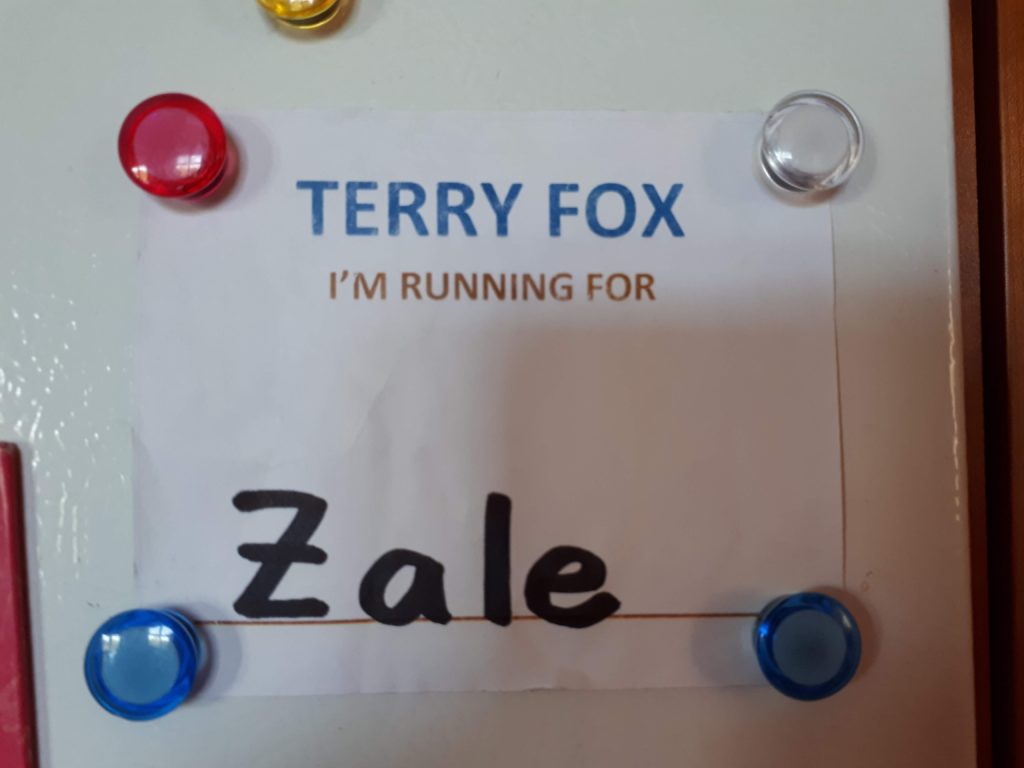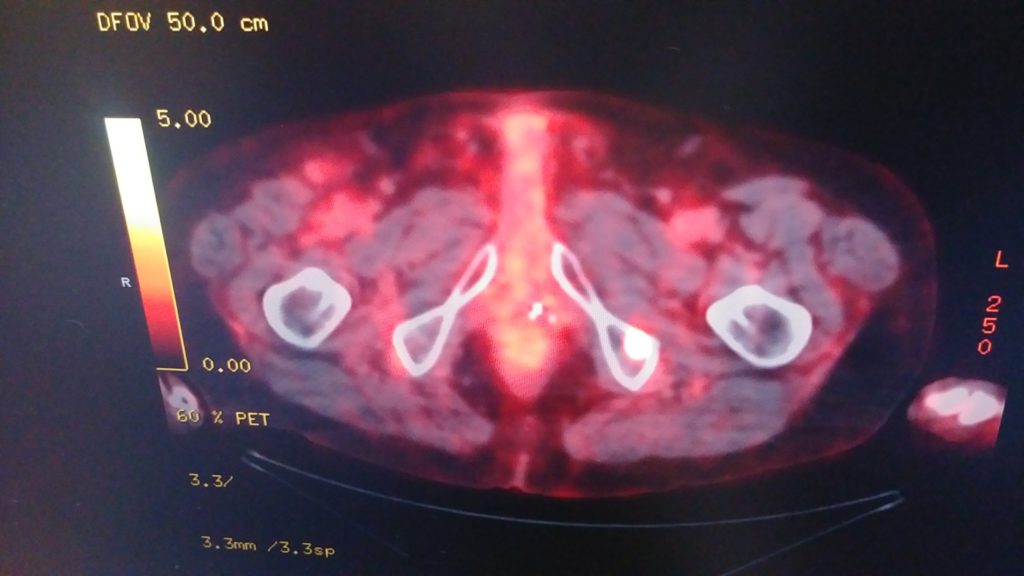In the post about my name change, I briefly touched on the tension between me and my father in my teen years, but that was just a part of it. John LeMay’s mention of his relationship to his father reminded me of this story.
When I was thirteen, fourteen, and fifteen, I was counting the days until I turned sixteen and could get a drivers license. I got my learner’s permit the day I turned sixteen, and my full on drivers license two days later. Then I took driver education, simply to get a reduced rate on my insurance.
My point is, I lusted after the freedom that driving would give me, and I loved to drive. I learned to drive on the family farm, driving my uncle Bill’s three ton dump truck, a stick shift with a non-synchromesh transmission that required double clutching to shift gears. I learned to drive a “three on the tree” family sedan on that same half mile of dirt roads, long before I could legally venture out onto the highways. My idea of the perfect date was to borrow the family car, throw an arm over my girlfriend on the bench seat, and just drive someplace.

that was not pretentious. Middle of the road and middle class.
My father’s car was important to him. He was a manager with Great West life Assurance, working with salesmen under his authority but also still in the field as a salesman himself. His car was as much his office as his office was. So it was incredibly generous of him to lend me his car for a Saturday night date. I appreciated that.
On one particular Saturday, I left the family farm to pick up my girlfriend. I drove down into Washington state, to Birch Bay where we could sit on the beach. Then I took the long way home, just enjoying her company and enjoying driving. Back roads. Highways. Small towns long since forgotten. But, being a grateful son, I stopped someplace at a gas station and filled the tank. In those days I think it took about two dollars to replace the gas I had burned. Thirty or forty cents a gallon if I remember correctly. Actually, I just looked that up and it was $.31 an imperial gallon in 1963 in B.C.. A penny less in 1964. Gotta love the Internet, eh.
So that was my date. Totally satisfying. But the next morning my father was furious. “Where’s my gas cap?”
“Your gas cap? Jeez dad, I don’t know.” This was back before the days of self serve. “I guess the guy at the gas station forgot to put it back on.”
“Well, where did you buy gas?”
“Uh…Dad, I have no idea. But just let me borrow your car and I’ll scoot into town and buy you a new gas cap.”
And that’s what I did. Problem solved. Except the problems were just beginning. For the next week, my father was having car problems. His car would start fine, and run fine for ten minutes for so, and then it would quit. He twice had it towed into a garage, where it would start fine and the mechanic would look at him and shrug. Can’t see any problem with your car, Dave. So off my father would go, only to have his car quit again after ten minutes of driving.
Finally somebody figured out the problem. I had purchased a non-vented gas cap. After a few minutes the engine would suck enough gas out of the tank to build up a vacuum, stop the flow, and stall the motor.
“Dad, I’m sorry. I didn’t even know there was such a thing as a non-vented gas cap, or that your car needed a vented one. I was trying to do the right thing for you. I’m really sorry this happened.” And that should have been the end of it, except it wasn’t.
A week later, my father was on a business trip up into the interior with a couple of his sales guys. Halfway through the Hope-Princeton highway, well past the sign reading “Check Your Gas, Next gas 80 Miles”, his car stopped. Although the gas gauge read half a tank, he was out of gas. The vacuum caused by the non-vented gas cap had collapsed his gas tank enough to throw out the gauge.
Once again, my father was not happy with me. I felt bad about it, but what could I do or say. “Dad, I’m sorry. I was just trying to do the right thing to thank you for lending me your car.”
My father got his revenge. Accidentally, and, like me, with the best of intentions. My uncle John offered me work for a summer on his fish collector, the MV Advise, working out of River’s Inlet on the B.C. Coast. His contract called for him to steam around to the trollers and gill netters, pick up and weigh their night’s catch, and deliver the silvery bounty to the packer in the evening, from thence the fish would go to the cannery, or the fresh fish market. That was the summer of 1966, the largest salmon run in fifty years.
I had never, and haven’t since, worked so hard. We’d start at first light in the morning. I’d get out of my bunk to get the coffee started before pumping the bilges. We were taking on a bit of water due to hitting a log going under the Lions Gate bridge, an event that bent the propeller and caused a stop in Gibsons to put on a new prop. The added vibrations of the bent prop had also damaged the stuffing box, so we were taking on a substantial amount of water over night, and during the day. Part of my job was to monitor the water level in the bilge and keep us from sinking by pumping it out. Next I’d cook breakfast, and by then we’d be approaching our first gill netter. I’d get a line on it, jump from our boat to the fishing boat, and fork the catch onto our deck, where John would count the various species, weigh them, and dump them from the deck scales into the hold.
By the end of the day, usually by eight or nine o’clock, the hold would be full and fish would be sliding around on our decks. By ten we’d be back at the packer. I’d jump into the hold and start forking the fish into the brailer, a net basket which would swing up over my head, dripping scales and slime, to take the fish to the packer. By eleven the hold would be empty. I’d be down there with a deck brush and the deck hose, scrubbing the slime and scales out of the hold. I’d have to jump out every few minutes to pump the ship, because the water from the deck hose had no place to go but through the bilge pump. Ah youth. In those days I could jump up and catch the combing of the hold to pull myself out. John was too short to do that, and needed a ladder to get out of the hold.
By one or two in the morning I’d pump the bilge for the last time and get to my bunk. In the morning, I’d catch hell if Captain John found a fish scale in the hold. It had to be clean.
That was when I learned to sleep whenever I could, under whatever circumstances, including sitting at the table while we steamed between fishing boats. That was a very useful skill to learn. I can still lie down on the floor anyplace, at any time, and be asleep in a matter of minutes. But that’s not the point of this story.
The thing is, what should have been an idyllic summer in a beautiful world was damn near ruined by the constant attention from Captain John. He was critical of my every move. If I put a knife in the sink, “You’re going to cut yourself on that knife”
“No I’m not, John. I’m washing it. I put it in the sink to wash it.”
Finally, near the end of the season, he said, “You know, this accident prone business is nothing but a lot of damn carelessness.” and the penny dropped.
“Accident prone business? Did somebody tell you I’m accident prone?”
“Well, you are, aren’t you?”
“No. I hardly ever have an accident. Haven’t had anything I’d call an accident in years.”
My father had told him I was accident prone so he would take care of me. Damn near ruined my whole summer.
That was the first phase of my father’s revenge. The second was worse. I’d earned enough to cover the rent for a couple of months in Vancouver by writing a film script and as an assistant editor on a Canadian feature, but couldn’t find work after that delivering pizzas much less something in the film making. Toronto was where the action was. So I hitch hiked to Toronto and got a job immediately at the CBC. A year later, my wife to be, her mother, and her two sisters drove her big red Pontiac, Big Red, from Vancouver to Toronto where we were to be married. Along the way they stopped at the family farm to put some of her things into storage, and her mother had a chance to take my father aside for a parental chat.
“I want to know what you are going to do for these young people,” she asked my father.
“Absolutely nothing.” was his blunt response. “My son is a bum. If you want to do your daughter a real favour you will convince her to call off this marriage. No good will come of it and it won’t last.”
The result was that my fiancée and her sisters were treated to a non-stop tirade as they drove the endless prairie miles, to the extent that Rena considered having her mother committed to a mental hospital when they reached Regina. It took some pleading on her arrival in Toronto to convince her the marriage should go on. That marriage lasted 32 years and resulted in three amazing children. A great partnership and not a bad run.
Ah, father. You had such a low opinion of me.
Thankfully, in later years, I managed to turn that around, and got to see him break into tears on reading my certificate from the Moscow Film Festival, “For peace and friendship among nations,” not realizing they would award that to anybody who made capitalism look heartless, which my first feature film, “Skip Tracer”, certainly did.
At a later time, after my kids were born, my father and I became very close. I taped interviews with him every weekend for months and transcribed the tapes into an oral history, which is an amazing document and a story for another day.
Damn but I miss him.
Let me conclude this post with another appeal for feedback. If you found my story interesting, if it touched you in any way, or even if you want to tell me to learn how to write, please leave a comment. I live for your attention.





